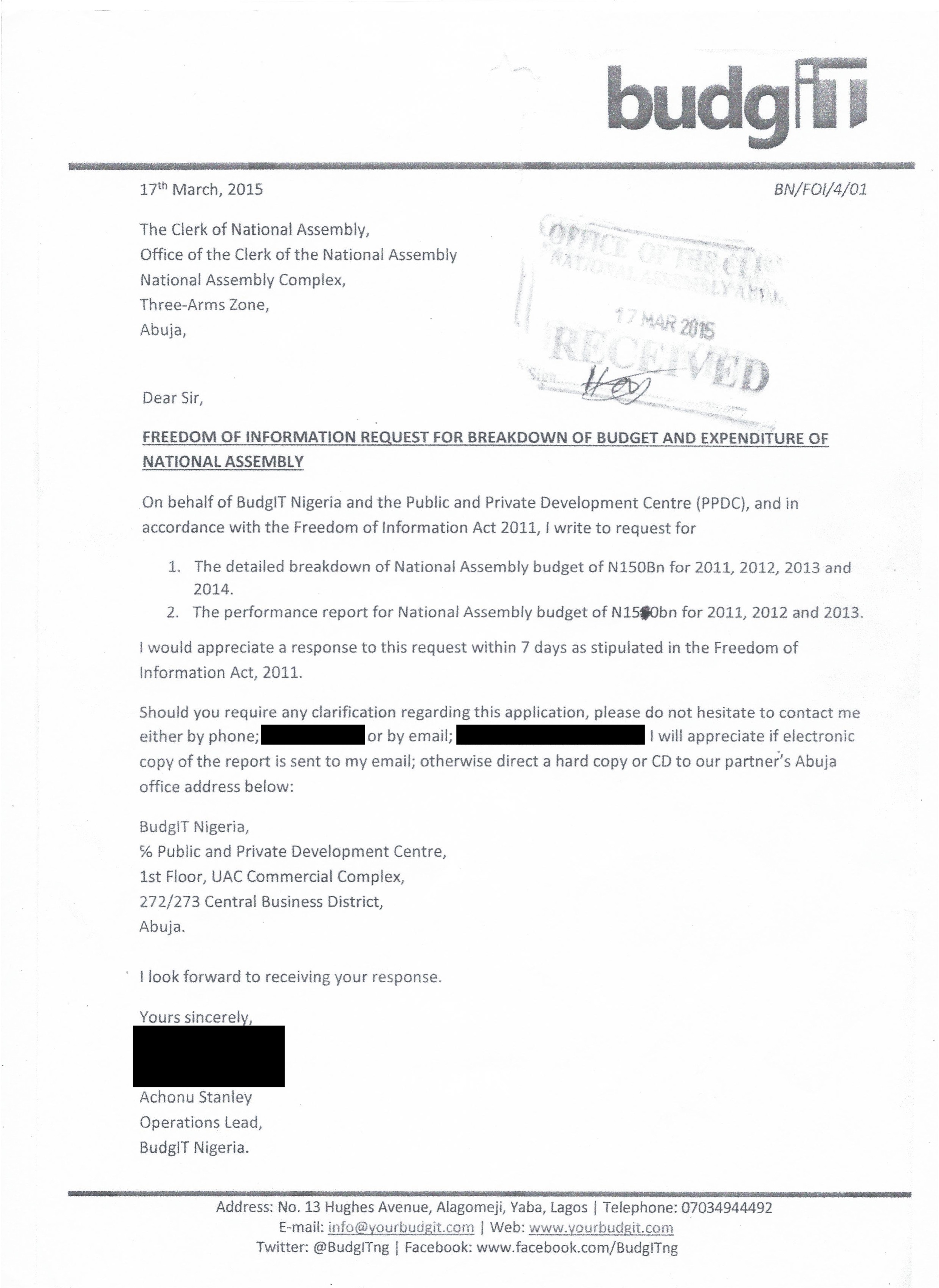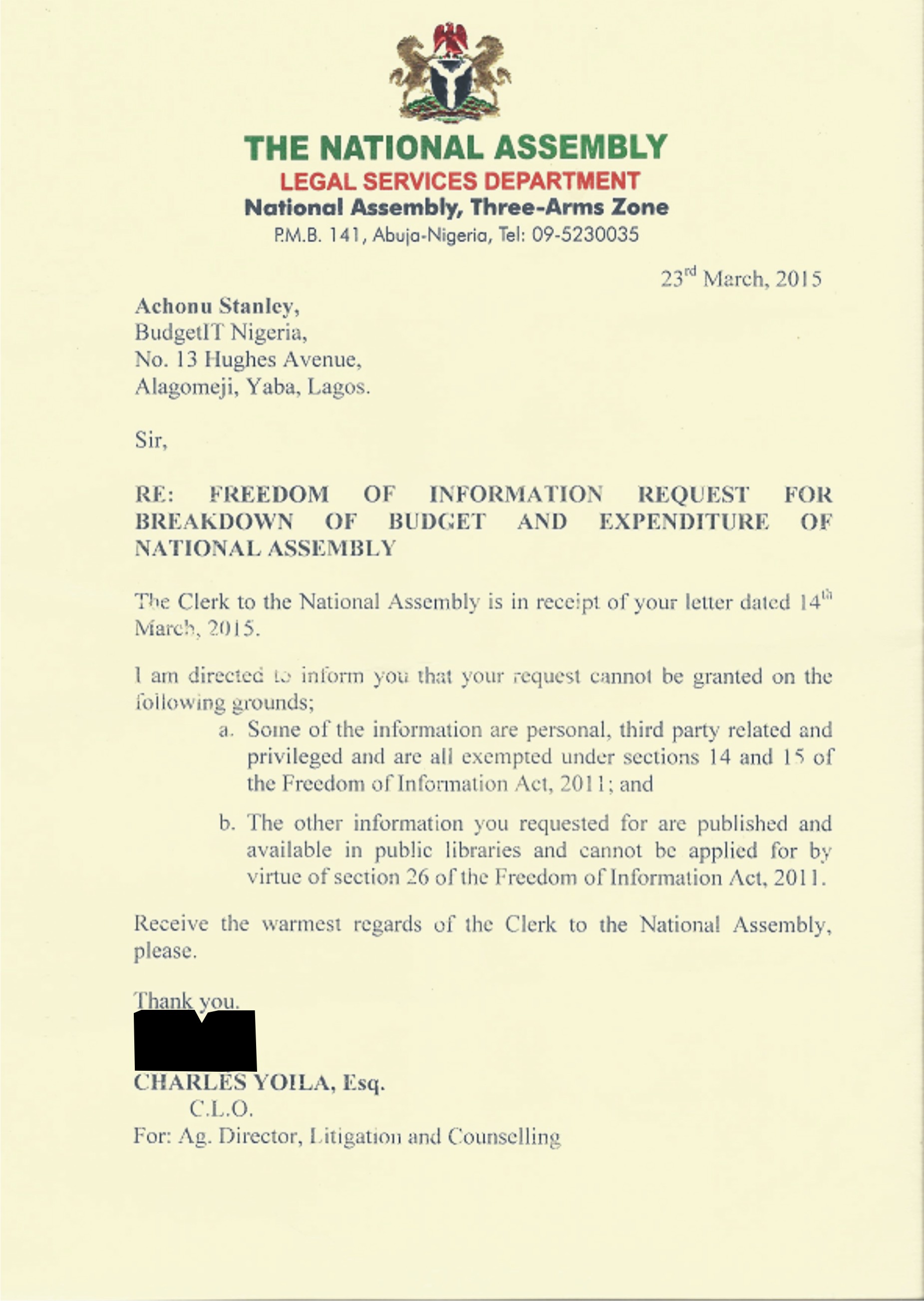The Budget Implementation (BudgIT) and Public and Private Development Centre (PPDC), has sued the National Assembly of the Federal Republic of Nigeria over refusal to make public its Budget even after a Freedom of Information (FOI) request had been served on it.
The two organisations have both decided to go to the courts on allegations that the National Assembly refused to disclose its budget details on the basis that it contains ‘personal, third party related and privileged information.’
In a statement released to the press, the bodies explained that they had on Tuesday, March 17, 2015 made a Freedom Of Information (FOI) request to the Clerk of the National Assembly (NASS), requesting for the detailed breakdown of their budget of N150 billion for 2011, 2012, 2013 and 2014 and a performance report for the budget of N150 billion for 2011, 2012 and 2013.
BudgIT and PPDC stated that their request due to the fact that there has long-standing secrecy surrounding the budget of the National Assembly.
They alleged that from 1999 to date, an estimated budgetary appropriation of N1.26 trillion had been made to the National Assembly, with Nigerians kept in the dark on what or how this huge sum was executed.
However, the National Assembly responded in a letter on Monday, March 23, 2015 refusing the Freedom Of Information request, on the basis that some of the information on the budgets were ‘personal, third party related and privileged and are all exempted under Sections 14 and 15 of the Freedom of Information Act, 2011.’
The National Assembly further stated that other requested information were already published and available in public libraries.
Section 14 of the Freedom of Information Act 2011 exempts personal information including ‘files and personal information maintained with respect to clients, students, patients, residents, students or individuals receiving social, medical, educational, vocational, financial, supervisory or custodial care or services directly or indirectly from public institutions, personnel files and personal information maintained with respect to employees, appointees or elected officials of any public institution or applicant for such positions, files and personal information maintained with respect to any applicant, registrant or licensee by any government or public institution cooperating with or engaged in professional or occupational registration, licensure or discipline; information required of any taxpayer in connection with the assessment or collection of any tax unless disclosure is otherwise requested by the statute; and information revealing the identity of persons who file complaints with or provide information to administrative, investigative, law enforcement or penal agencies on the commission of any crime.’
The two groups argue that it was wrong for a publicly funded budget to fall within the category of information that the Freedom of Information Act exempts under Section 14 and 15 which exempts some information pertaining to finance.
BudgIT and PPDC further noted that the response by the National Assembly was outrageous as there were no grounds (even Section 14 and 15) to deny the information requested.
The groups said, ‘Both organizations are shocked at the reasons put forward by the Acting Director for Litigation and Counselling, Mr Charles Yoila, on behalf of the Clerk of the National Assembly.
“It is a basic fact that the Budgets of public institutions are public documents and generally contain no personal, third party or privileged information.
“Detailed breakdowns of all budgetary allocations to the Presidency are publicly available on the BudgIT website and contains none of the data stated in the section Mr Yoila has quoted.
“In the most extreme circumstances worldwide, information released under FOI which contains sensitive information like individuals’ personal addresses or financial information may have only these sections redacted prior to release.
“But usually, nowhere in Budgets does such person-specific information exist, and neither did the NASS proffer specific examples.
“We therefore submit that this blanket response by the NASS is yet another crutch, which those who are expected to hold public funds and information in trust for the people often lean on to delay their being held accountable to those whose taxes and votes put them in business.”
As such, the bodies have decided to take the case to court.
See the attached copies of the FOI request and the national assembly response below:









